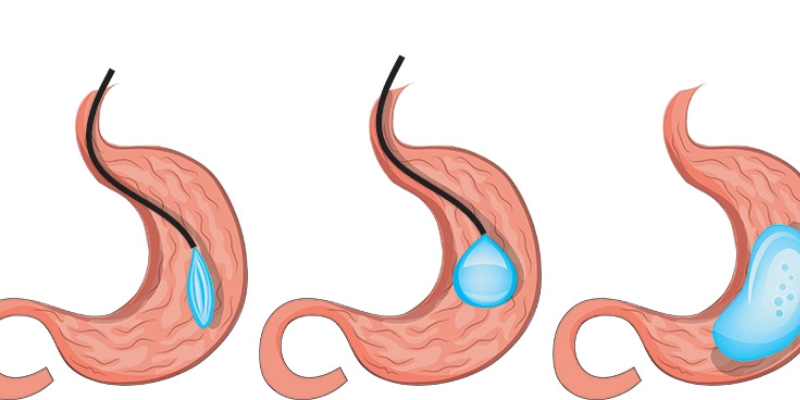What happens if you eat solid food after gastric sleeve? Deciding to have a gastric bypass is an important decision. After performing a procedure like this, your doctor will tell you all about the risks of the bypass. However, not everyone who undergoes this surgery has to go through these risks. If you already know that you would rather keep your body’s digestive system healthy and fit, then consider following a special diet plan.
If you eat too much when you are first recovering from surgery, your health will suffer. Because your stomach is so small, you cannot take in too much at one time. It takes time for your body to build up a capacity for absorbing nutrients. As a result, you can eat small amounts of meals and snacks to make sure that your digestion system gets the vitamins and nutrients it needs.
You need to be careful about overeating because your body could become very ill from eating too much. If you do overeat immediately after the surgery, you could wind up hurting yourself or other people around you. To avoid this, you need to make sure that you eat solid food only after three to six months. This allows your digestive system to get adjusted to eating small amounts. If you eat too much food right away, your digestive system will experience stress, which could slow down its function.
About What Happens If You Eat Solid Food After Gastric Sleeve
What happens if you eat solid food after gastric sleeve? While you are waiting for your digestion to heal, it is not a good idea to snack between meals. Snacking is one of the things that can damage the walls of your stomach. If you eat too many meals in a day, you could wind up with nutritional deficiencies. If you are on a liquid only diet, you also need to make sure that you do not eat solid food until your stomach is completely healed.
Your doctor will give you a list of what you should be eating, but you should make sure that you follow the plan. If you eat too much when you have gastric bypass surgery, you might end up putting on weight rather quickly. In addition, you might feel bloated and nauseous most of the time. If you have had this problem in the past, it may be because you were not following the plan correctly.
However, if you follow the plan exactly, you will not be tempted to skip meals. You will be able to keep up with it until the healing period is over. You may find that you crave food between meals and it can be hard to avoid. When you reach your desired weight, you should be able to eat small, frequent meals so that you do not put on weight too quickly.
Gastric Sleeve
What happens if you eat solid food after gastric sleeve? After gastric bypass surgery, your body is very sensitive to insulin. If you stop eating right away, you can cause your insulin levels to rise and cause your body to be more susceptible to diabetes. Keep in mind that you will also have to make sure that you are getting enough nutrients. If you are not following a proper plan, you may not be getting enough nutrients. It is important to consult your doctor when you do not understand how much nutrition you need to eat.
After gastric bypass surgery, your stomach will be smaller and it will be a bit more difficult for you to move after a while. As long as you follow all of your doctor’s advice, you should be able to recover fairly quickly. You may experience some discomfort in your abdomen at first, but this should decrease with time. Talk to your doctor about any concerns you have about recovery and the procedure itself.
After gastric bypass surgery most patients have to eat a liquid meal after one or two hours. Why? Because the stomach is not strong enough to create a full feeling food. If you eat solid food after gastric bypass surgery, it gives you more comfort and allows your stomach to be stronger and full before it is time to go back to solid food. When people first go in for this procedure they are put on a liquid diet for about two days to see how their bodies heal.
Weight Loss
What happens if you eat solid food after gastric sleeve? If you eat solid food after gastric bypass surgery you will be given liquids first. You can eat small, frequent meals or you can eat only once a day. It’s really up to you and what you prefer. The dietitian who is helping you with this type of surgery will help you with meal planning and you can even ask them to make special foods just for you at home.
This type of gastric bypass surgery is called malabsorption. In this procedure the small intestine is divided into two. One part is the duodenum which houses your stomach acid and the other contains your small intestines. Malabsorption occurs when your stomach acids are absorbed first, before your small intestines are able to absorb the nutrients. This causes our organs to work harder, so if you overwork your body it will cause it to break down.
If you eat solid food you should feel full quickly. This means that you can eat smaller amounts more often, but you should not feel hungry. If you eat too much before you are full you could put on weight rather quickly. If you are eating a lot but not eating enough, it can cause you to experience bloating or nausea.
Losing Weight With Gastric Sleeve
You will probably have some discomfort after you undergo this surgery. This is common after any surgery and you will likely feel pain or tenderness around the incision areas. However this usually goes away within a week. After you eat your surgery your physician will likely give you an anti-emetics. This will help you avoid feeling hungry.
It may take up to six months after you have gastric bypass surgery to reach your normal weight. You will probably need to exercise regularly and watch what you eat. Your doctor will be able to help you with suggestions for your new diet. He or she will probably also be able to assist you in maintaining your new weight if you need to.
What Happens If the Gastric Balloon Pops and How to Deal with It?
There is a simple answer to “what happens if the gastric balloon pops?” If the gastric balloon pops, it is essential to contact a doctor immediately. In some cases, the balloon contents may need to be surgically removed. There could be a risk of infection or gastrointestinal blockage due to the gastric balloon material inside your stomach. Your doctor may also recommend additional tests to evaluate any damage caused by the popping of the gastric balloon. In some cases, another treatment may be needed if there are complications from the popped gastric balloon. Depending on the situation, a new balloon may need to be inserted. Following up with your doctor after any such incident is essential to ensure that your health and safety are not compromised.

Regular check-ups with your physician will help you stay on track with your weight-loss goals and ensure that all is going well with your gastric balloon treatment. Remember that these balloons can deflate or pop unexpectedly. Hence, it is best to be aware of the potential risks involved in this procedure and learn about “what happens if the gastric balloon pops?” and how to deal with it.



